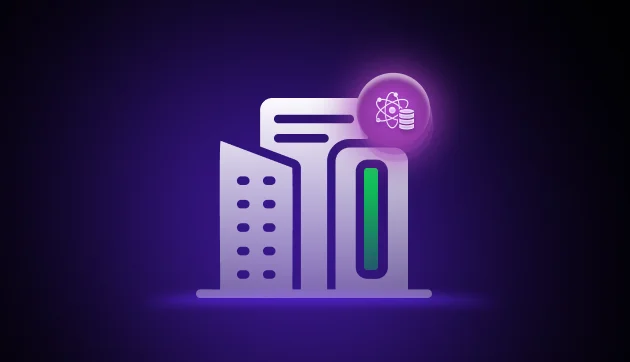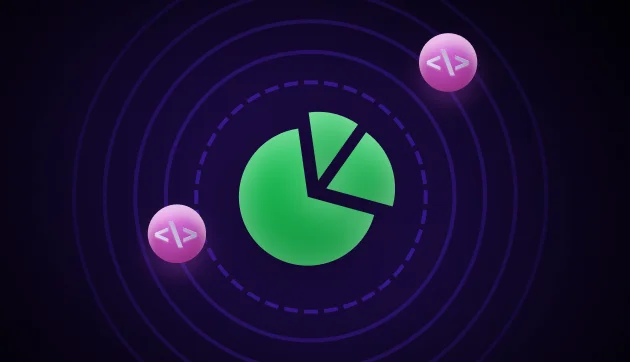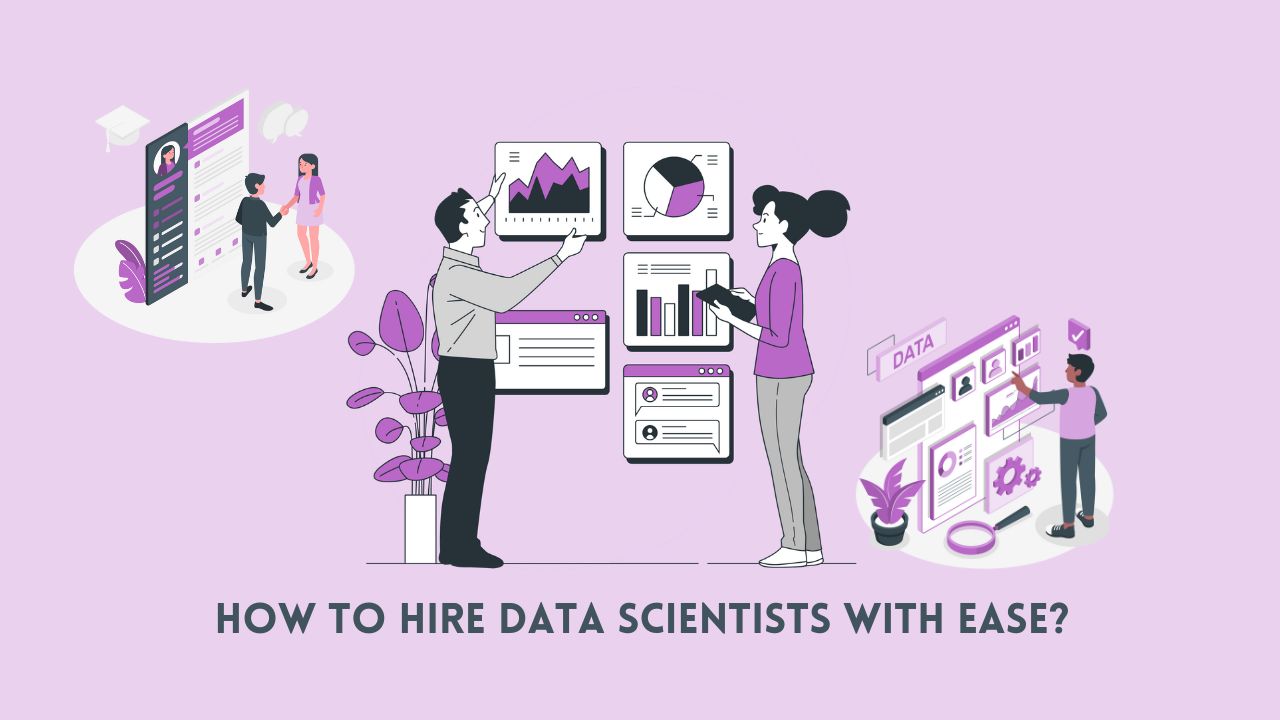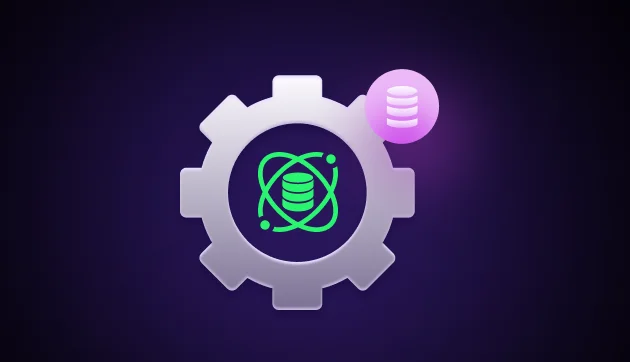
Data Science vs Data Analytics | Best Career Choice in 2025
Apr 15, 2025 3 Min Read 9168 Views
(Last Updated)
Our modern world relies heavily on data, which brings changes in many aspects of business, research & economy. For this reason, there is a huge demand for professionals in data science & data analytics with a job growth of 22% increase(as predicted by the Bureau of Labor Statistics).
Since both of these fields feature data-driven job roles, it is quite common to get confused between the two. In this case, this read can help you understand the major difference between Data Analytics & Data Science. Further, enabling you to make an informed decision in choosing your career path.
Table of contents
- In Data Analytics, Who is a Data Analyst?
- Some Common Tools & Technologies Used in Data Analytics
- In Data Science, Who is a Data Scientist?
- Some Common Tools & Technologies Used in Data Science
- Interesting Key differences between Data Analyst & Data Scientist:
- Use cases of Data Science:
- Use cases of Data Analytics:
- Other Roles of Data Scientists & Data Analysts:
- Salary Details:
- Conclusion:
In Data Analytics, Who is a Data Analyst?
Firstly, a data analyst collects data, & identifies the trends that further help the business leaders make strategic decisions. Secondly, their job also includes cleaning data, aligning it in a usable format, and deleting irrelevant/unusable data. Also, Data analysts figure out how to deal with the missing data. Above all, they principally perform statistical analyses to help answer questions & solve problems. As a result, they use tools like SQL to make queries to relational databases.
Roles of a Data Analyst:
- Data querying by using SQL.
- Analyses & forecasts the data using Excel.
- Uses business intelligence software to create dashboards.
- Performs descriptive, diagnostic, predictive & prescriptive analytics.
Some Common Tools & Technologies Used in Data Analytics
- Relational database software(example: SQL)
- Statistical software(example: R Studio)
- Business intelligence tools(example: Datapine)
Before we move into the next section, ensure you have a good grip on data science essentials like Python, MongoDB, Pandas, NumPy, Tableau & PowerBI Data Methods. If you are looking for a detailed course on Data Science, you can join GUVI’s Data Science Course with Placement Assistance. You’ll also learn about the trending tools and technologies and work on some real-time projects.
Additionally, if you want to explore Python through a self-paced course, try GUVI’s Python course.
In Data Science, Who is a Data Scientist?
A data scientist focuses on developing new tools & methods to extract the information the business requires to solve complex problems. And, they create algorithms, predictive models, design various data modeling processes & thus, actively involve themselves in designing the latest tools, data frameworks & automation systems.
In simple words, a data analyst works to make sense out of the existing data, while a data scientist works on innovative ways for capturing and analyzing data, that further can be used by the analysts.
Roles of a Data Scientist:
- Majorly scrubbing/ cleansing data.
- Uses APIs & builds ETL pipelines for Data mining.
- Data cleaning through programming languages like Python/R.
- Statistical analysis using ML algorithms.
- Develop & train ML models using tools.
- Develops big data infrastructures
Some Common Tools & Technologies Used in Data Science
- SAS for performing statistical operations
- Apache Spark for fast & efficient data processing
- BigML for processing Machine Learning Algorithms
- MATLAB for processing mathematical information
- TensorFlow to develop & train ML models
Typically, a data scientist deals with many other tools to perform data operations.
Interesting Key differences between Data Analyst & Data Scientist:
- Data Analysts tend to focus on solving business problems. Data Scientists have the additional responsibility of identifying the problems alongside solving them.
- Data Scientists are required to possess strong management & storytelling skills to come up with business strategies through their findings. , Data Analysts are typically not expected to keep the business team about the results & to make key decisions for the business, unlike data scientists. In short, business acumen isn’t required.
- Data Scientists perform predictive modeling, handle statistical tools & forecast the future of business. While Data Analysts don’t have to worry about predictive modeling & their job is limited to statistical analysis.
- Data Scientists will have to be good at building Machine Learning models, tuning the data models. On the other hand, Data Analysts are free from building data products.
- Data Scientists manage both the structured & non-structured data, i.e., handle SQL & NoSQL. While Data Analysts are just responsible for retrieving & managing the structured data through SQL queries.
Use cases of Data Science:
- Advertisement optimization
- Fraud & Risk detection
- Sentiment analysis
- Clickstream analysis
- Search Recommendations
- Automating risk management
Use cases of Data Analytics:
- Customer Analysis in 360 Degrees
- Social media Analysis
- Customer prevention based on churn analysis
- Market basket analysis
- Upselling & Cross-selling
- Delivery of personalized customer experience
Other Roles of Data Scientists & Data Analysts:
Various other roles of data domain can be played by data scientists & data analysts according to their skillset. Say, a Data Analyst can also act as a Database Administrator or even a Statistician. Comparatively, a Data Scientist can play the roles of Big Data Architect, Decision Scientist, Data Engineer, & Data Science Manager.
Salary Details:
Generally, in India, the national average income for a Data Analyst is ₹6,95,000 per annum & the maximum salary can go up to ₹11,00,000 per annum. Next, the national average income for a Data Scientist is ₹10,00,000 per annum & the maximum salary can go up to ₹25,00,000 per annum. (Source: Glassdoor)
Kickstart your Data Science journey by enrolling in GUVI’s Data Science Course where you will master technologies like MongoDB, Tableau, PowerBI, Pandas, etc., and build interesting real-life projects.
Alternatively, if you would like to explore Python through a Self-paced course, try GUVI’s Python certification course.
Conclusion:
Chiefly, coming to the hierarchy in the data industry, a data analyst can begin at an entry-level role, and may continue to learn & sharpen their skills to become a data scientist. That is to say, with the existing skill gaps in the data science domain, even top company recruiters are showing interest in candidates who have undergone rigorous training in boot camps that enable these trainees with relevant industry exposure.
To clarify, many aspirants assume that reaching the pinnacle of the data scientist role is a tedious task. Just in case, if you’re targeting to become a data scientist. Online bootcamps with effective learning resources make the training journey easier & upskills the aspirants towards their dream role of a data scientist.

























Did you enjoy this article?